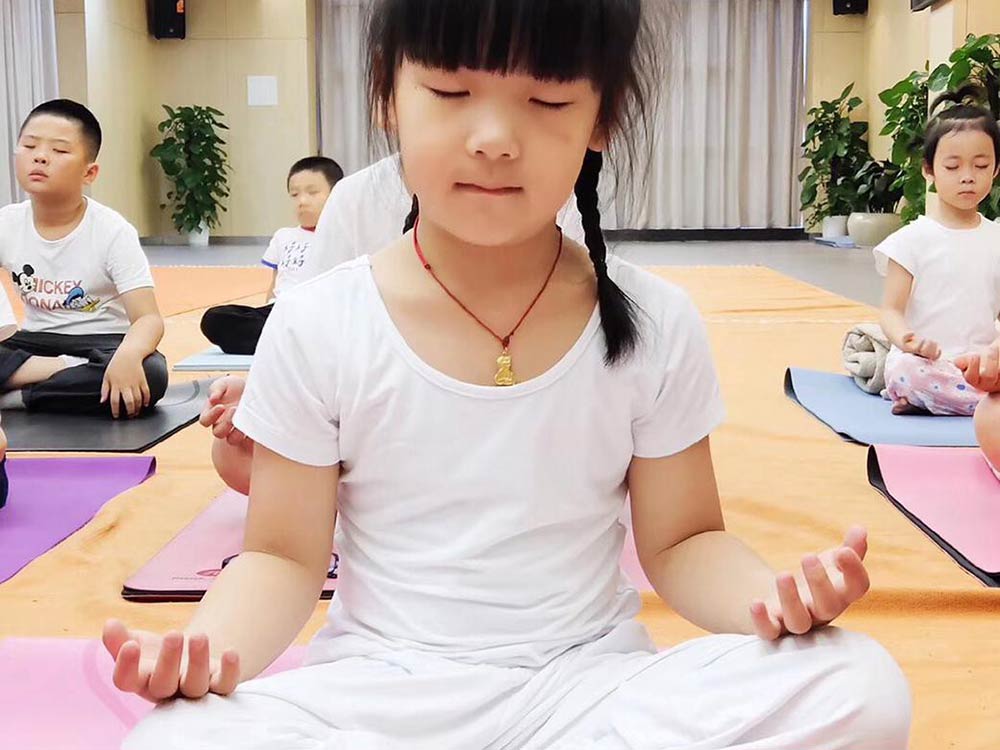
This year’s World Mental Health Day, recognized on October 10, comes at a time when depression rates are tripling and there’s a looming mental health crisis on the horizon. We’ve all been affected by the COVID-19 pandemic in one way or another, and many of us are feeling stressed and overwhelmed.
While the emotional toll of the pandemic is causing an increased demand for mental health services, limited access to treatment is a huge problem.
It’s high time that the mental health conversation goes mainstream and we find effective solutions that don’t rely solely on access to healthcare services.
Conventional psychiatric treatments like medications and talk therapy typically address symptoms only from the “head up”. However, research shows that a full body approach that incorporates exercise, nutrition, and mind-body practices like yoga into treatment is most effective.
As a practicing psychiatrist and sleep specialist, yoga has become an integral tool in my toolkit.
Now, when I say “yoga”, it may conjure up images of twisting your body into pretzel-like poses while outfitted in figure-hugging lycra. However, yoga is more than just a physical exercise.
The word yoga comes from Sanskrit and literally means “yoke” or “union”. It’s a complete system that includes physical postures (asanas), breathing practices, and meditation.
Ironically, it’s when I was training to become a psychiatrist that my feelings of burn-out hit the roof. I was exhausted, disillusioned, and looking for a solution. At that point, I was introduced to kriya yoga, which is a type of breathing-based yoga practice, and I noticed a difference almost immediately.
Although the external situations hadn’t changed, with my consistent yoga practice, things just felt easier.
The great thing about yoga is that it’s effective for reducing stress and is accessible to everyone. This is something we all need during this unprecedented time.
Here are 3 ways yoga can help with mental health
1. Yoga can alleviate depression in people who haven’t responded to antidepressants.
A study on breathing-based yoga done through the University of Pennsylvania showed reductions in depression and anxiety scores after only 8 weeks of practice in people with major depressive disorder (MDD) who continued to feel depressed on antidepressant medications (1).
2. Yoga improves physiological markers of stress like heart rate variability (HRV) and blood pressure.
Heart rate variability (HRV) is an indicator of how well your body handles stress. A high HRV usually indicates better health, better physical fitness, and an increased ability to handle stress. Yoga helps to increase HRV and is an effective way to reduce negative emotions and reduce stress in people living under high stress situations — which is most of us at this moment in time(2)!
A study of college students showed that practicing meditation for 3 months reduced blood pressure, psychological distress, anxiety, depression, anger/hostility, and improved their ability to cope with stress(3).
3. Practicing yoga from the safety of your home is effective, and you can still reap the benefits you’d get from going to a yoga studio!
Participants in a tele-yoga program offered during the pandemic in April 2020 reported improved energy, increased mental relaxation and calmness, feeling more refreshed, and concentrating better after just 4 weeks of practicing yoga at home through guided videos⁴. The best part is that you can do this in your pj’s, no Lululemon yoga pants required.
These mind-body tools are effective, safe, and available to everyone regardless of age, health status, and access to healthcare services.
Not sure where to begin? Here’s a free resource to get you started, whether you want to try a guided meditation or a simple, 5-minute physical yoga practice. Click here to get started.



Recent Comments